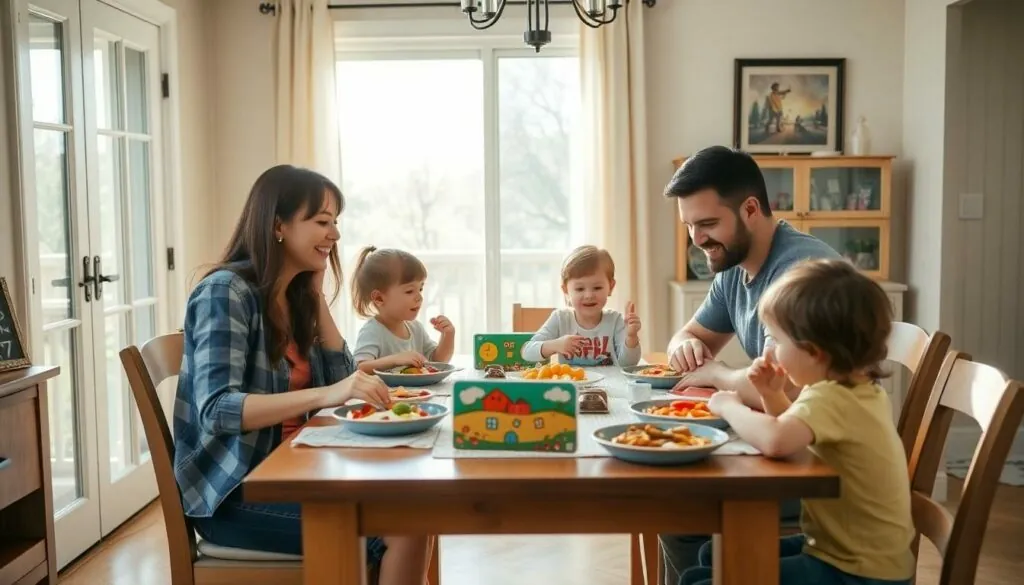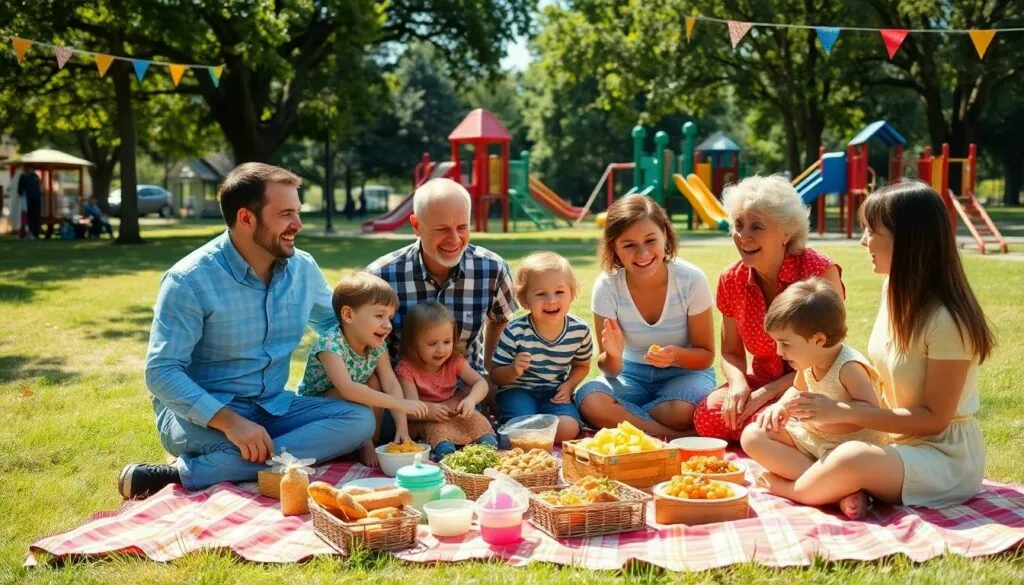Table of Contents
ToggleRaising kids isn’t exactly rocket science – but sometimes it feels even harder! From sleepless nights with newborns to navigating the teenage years parents face countless challenges that would make even NASA engineers scratch their heads.
Modern parenting requires a delicate balance of love discipline and patience. While there’s no universal manual for raising children following proven guidelines can help create a nurturing environment where kids thrive. Today’s parents juggle traditional wisdom with contemporary approaches as they guide their little ones through an increasingly complex world.
These practical parenting guidelines will help transform chaos into calm and confusion into confidence. Whether you’re a new parent or a seasoned pro these strategies offer a roadmap to raising happy healthy and well-adjusted children without losing your sanity in the process.
Understanding Effective Parenting Guidelines
Effective parenting guidelines establish a framework that promotes child development while maintaining family harmony. The implementation of these guidelines creates a structured environment where children thrive emotionally, socially and mentally.
Setting Healthy Boundaries
Healthy boundaries define acceptable behavior through clear expectations and consistent consequences. Parents establish limits on screen time, designate specific areas for play activities and set rules for social interactions. Physical boundaries include safe spaces for exploration while emotional boundaries teach children to respect personal space and express feelings appropriately. The establishment of age-appropriate boundaries helps children:
- Develop self-discipline through structured daily activities
- Learn respect for others’ personal space and property
- Understand safety limits in different environments
- Recognize appropriate social behavior in various settings
- Build emotional intelligence through guided interactions
Creating Consistent Routines
- Predictable meal times that support healthy eating habits
- Regular sleep schedules that enhance rest quality
- Designated study periods that improve academic performance
- Structured play times that balance recreation and responsibilities
- Family bonding moments that strengthen relationships
Building Strong Communication Skills
Effective communication forms the cornerstone of positive parent-child relationships. Parents who master communication skills create stronger bonds with their children while fostering emotional intelligence and social development.
Active Listening Techniques
Active listening demonstrates genuine interest in a child’s thoughts and feelings. Parents maintain eye contact at the child’s level during conversations to show engagement. The technique includes nodding occasionally pausing natural responses like “I understand” or “Tell me more.” Reflecting the child’s statements helps validate their emotions: “It sounds like you felt sad when that happened.” Parents eliminate distractions by putting away phones tablets during discussions. Open-ended questions encourage children to express themselves fully rather than giving simple yes/no answers. The 80/20 rule applies – letting children speak 80% of the time while parents listen actively for the remaining 20%.
Expressing Love and Support
Parents express love through both words and actions throughout daily interactions. Simple phrases like “I love you” “I’m proud of you” or “You handled that well” build a child’s self-esteem and security. Physical affection including hugs high-fives snuggling creates emotional connections. Parents demonstrate support by attending important events celebrating achievements offering help during challenges. Specific praise focuses on effort process rather than results: “You worked hard on that puzzle” versus “You’re so smart.” Regular one-on-one time allows for deeper conversations sharing creating lasting emotional bonds. Parents maintain positive expressions even when correcting behavior separating actions from the child’s worth.
Positive Discipline Strategies
Positive discipline combines clear boundaries with constructive feedback to guide children’s behavior. This approach focuses on teaching rather than punishing while maintaining respect for both parent and child.
Age-Appropriate Consequences
Children respond differently to discipline based on their developmental stage. Toddlers (ages 1-3) benefit from brief time-outs lasting 2-3 minutes. Preschoolers (ages 4-5) understand the removal of privileges like favorite toys or activities for 24 hours. School-age children (ages 6-12) learn from logical consequences such as losing screen time for incomplete homework or staying inside to finish chores before playing. Teenagers (ages 13-17) respond to relevant restrictions like reduced social activities or driving privileges. Effective consequences match the child’s comprehension level while maintaining a direct connection between actions and outcomes.
Reinforcing Good Behavior
Positive reinforcement strengthens desired behaviors through specific recognition. Parents catch children making good choices by acknowledging actions like sharing toys, completing homework without reminders or helping siblings. A reward system using sticker charts works for children ages 3-8, with 5-10 stickers earning agreed-upon privileges. Older children benefit from earned privileges such as extended bedtimes or additional allowance. Immediate verbal praise includes statements like “Great job putting your dishes in the sink” or “I noticed you helped your sister with her math.” This approach creates a 4:1 ratio of positive to corrective interactions, building confidence through earned recognition.
Managing Child Development Stages
Child development progresses through distinct phases marked by physical emotional cognitive milestones. Understanding these stages enables parents to provide appropriate support guidance during each period.
Physical and Emotional Milestones
Children experience predictable growth patterns from birth through adolescence. Infants develop motor skills like rolling over at 4 months grasping objects at 6 months walking at 12 months. Toddlers master running jumping climbing between ages 2-3 while developing language abilities expressing 50+ words. Preschoolers refine coordination through activities like riding tricycles using scissors drawing shapes.
Emotional development follows parallel trajectories:
- Infants form attachments express basic emotions through crying smiling
- Toddlers experience separation anxiety begin asserting independence
- Preschoolers learn emotional regulation develop empathy for others
- School-age children build self-esteem form deeper friendships
- Adolescents explore identity navigate complex social relationships
Educational Support
Parents enhance learning through age-appropriate activities engagement:
Key strategies include:
- Reading together daily starting from infancy
- Providing hands-on learning materials like blocks puzzles art supplies
- Engaging in interactive play that builds problem-solving skills
- Creating designated homework spaces with minimal distractions
- Maintaining regular communication with teachers counselors
| Age | Academic Focus |
|---|---|
| 3-5 | Letters numbers shapes colors |
| 6-8 | Reading writing basic math |
| 9-11 | Complex reasoning research skills |
| 12-14 | Abstract thinking critical analysis |
| 15-18 | Advanced subjects college prep |
Maintaining Parent Self-Care
Effective parenting requires a well-maintained foundation of personal wellness. Parents who prioritize their physical mental health demonstrate increased patience resilience in managing daily parenting challenges.
Finding Balance
Parents maintain optimal energy levels through structured self-care routines. A balanced approach includes 7-8 hours of nightly sleep micro-breaks throughout the day for mental resets. Physical wellness activities integrate seamlessly into family schedules through morning stretches family walks joint workout sessions. Parents benefit from dedicated personal time blocks – 15-30 minutes daily for meditation reading journaling personal hobbies. Stress management techniques like deep breathing progressive muscle relaxation mindfulness exercises enhance emotional regulation capacity.
Building Support Networks
Strong support systems provide parents with practical emotional assistance for sustainable parenting. Local parenting groups offer regular meetups sharing sessions where parents exchange experiences strategies resources. Online communities connect parents 24/7 through dedicated forums social media platforms mobile apps focused on specific parenting topics age groups. Professional support includes pediatricians family counselors parenting coaches who provide expert guidance during challenging phases. Extended family members trusted friends regular babysitters form a reliable care network enabling parents to attend to personal needs work commitments social activities while ensuring children receive quality care attention.
Fostering Family Relationships
Strong family bonds create emotional security sustaining positive development in children. These connections develop through intentional interactions creating lasting family memories.
Quality Time Together
Dedicated family activities strengthen emotional bonds between parents and children. Parents establish meaningful connections through daily rituals like sharing meals without electronic distractions or engaging in bedtime reading routines. Regular family game nights create opportunities for natural conversations while developing problem-solving skills. Outdoor activities such as hiking or playing sports foster physical health alongside emotional connections. Weekend projects like gardening or crafting allow families to collaborate toward shared goals.
| Activity Type | Recommended Duration | Benefits |
|---|---|---|
| Family Meals | 30-45 minutes daily | Communication skills, social bonding |
| Game Nights | 1-2 hours weekly | Problem-solving, teamwork |
| Outdoor Activities | 2-3 hours weekly | Physical health, stress reduction |
| Creative Projects | 1-2 hours weekly | Collaboration, skill development |
Sibling Harmony
Positive sibling relationships develop through structured interaction and conflict resolution strategies. Parents facilitate cooperation by creating opportunities for siblings to work together on shared tasks or projects. Individual attention from parents reduces competition between siblings for parental recognition. Teaching conflict resolution skills empowers children to solve disagreements independently. Establishing clear family rules about respect prevents physical aggression between siblings. Regular family meetings provide a forum for siblings to express concerns constructively.
| Sibling Strategy | Implementation | Outcome |
|---|---|---|
| Shared Activities | 3-4 times weekly | Improved cooperation |
| Individual Time | 20 minutes daily per child | Reduced rivalry |
| Family Meetings | 30 minutes weekly | Better communication |
| Team Projects | 1-2 hours weekly | Enhanced problem-solving |
Conclusion
Raising children is a dynamic journey that requires adaptability patience and dedication. While every family’s path is unique successful parenting hinges on establishing clear boundaries maintaining open communication and implementing positive discipline strategies.
Parents who prioritize both their children’s development and their own well-being create a nurturing environment where families can thrive. By understanding developmental stages fostering healthy relationships and building strong support networks parents can navigate the challenges of child-rearing with confidence.
These guidelines serve as a compass not a rigid rulebook helping families create their own unique path to success in the rewarding journey of parenthood.





